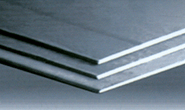Government/Policy

June 7, 2021
AD Orders on CTL Steel Plate Imports To Remain for China, Russia and Ukraine
Written by Sandy Williams
The U.S. International Trade Commission voted to continue antidumping orders on imports of cut-to-length carbon steel plate from China, Russia and Ukraine. Removing the orders, said the Commission in its sunset review, would “likely lead to continuation of recurrence of material injury within a reasonably foreseeable time.”
![]() The original investigation into CTL steel plate imports from China, Russia and Ukraine was initiated in 1997, covering imports to the U.S. in 1995. On October 24, 1997, Commerce entered into suspension agreements with the three parties, restricting the volume of imports to the U.S. The suspension agreements continued for several years until November 3, 2003 when Commerce terminated the suspension agreement and imposed antidumping duties on CTL plate from China. The suspension agreements for Russia and Ukraine and the antidumping duties for China remained in place through the third sunset review in 2015 and were reaffirmed in the fourth review last week.
The original investigation into CTL steel plate imports from China, Russia and Ukraine was initiated in 1997, covering imports to the U.S. in 1995. On October 24, 1997, Commerce entered into suspension agreements with the three parties, restricting the volume of imports to the U.S. The suspension agreements continued for several years until November 3, 2003 when Commerce terminated the suspension agreement and imposed antidumping duties on CTL plate from China. The suspension agreements for Russia and Ukraine and the antidumping duties for China remained in place through the third sunset review in 2015 and were reaffirmed in the fourth review last week.
Steel plate has been in short supply in the U.S. with prices averaging $1,405 per ton ($70.25 per cwt) when this article was filed. That’s up 60.6% from $875 per ton at the beginning of the year and more than double $600 per ton in early June of 2020, per SMU pricing records.
Plate lead times, meanwhile, stand at six to nine weeks.
By Sandy Williams, Sandy@SteelMarketUpdate.com







